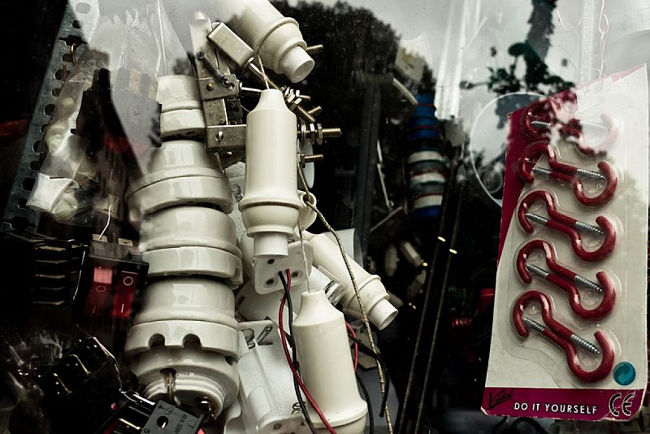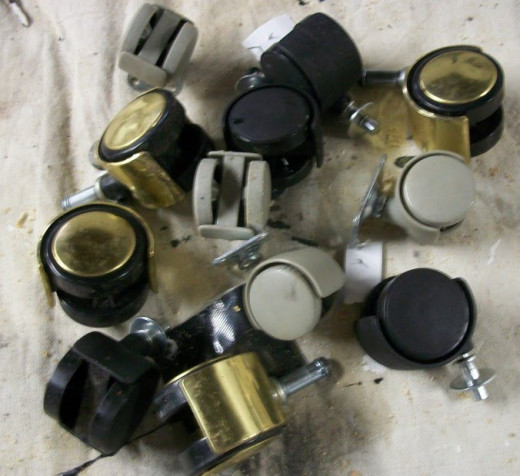Why Do It Yourself is a Dying Art and Skill - RIP for DIY
Need is the mother of invention. But modern men and women have lost the power to solve their needs for themselves. You can always find someone else to do it for you - both for the invention and for the solution. Others invent. Others construct. Others repair. Your need is their command. You pay, they deliver.
Genuine 'handy' people can do, repair, fix just about anything. Handy people can adapt and find innovative ways to get things working again, perhaps with bizarre and untidy outcomes. But, people in modern societies are losing the nous, skills, desire, imagination and incentive to build and repair things ourselves. The 'handy' people are a threatened species heading for extinction. Why?
Hardware stores in many countries are going broke and closing down. Those that survive, promote the concept of doing it yourself (DIY), but in reality these stores are warehouses of replacement goods and parts. Most items we buy today are not designed to be repaired. Most people cannot do their own repairs.
Today, we live in a 'dump and replace' society with a buy-new-again approach for things that fail. Repairs are expensive. Repairers are hard to find, they take too long, and the repairs never last long enough. Many items have such short working life anyway. They have built in redundancy. Many people cannot cook their own meals let alone do basic repairs around the house and renovate their own homes.
Why has this happened? Why is 'Do It Yourself' a Dying Art and Skill? RIP for DIY






The Art and Skill of DIY not Taught
DIY is an art because many devotees of sustainability and repairing things approach it as an art form and are really proud of what they do. Many DIY experts are inventors who love to solve problems, often in strange ways by tinkering about and using junk. Self sufficiency is a DIY artist in residence. But, self sufficiency is also dying out. People want shiny new things not odd contraptions. Modern society teaches people that they musty always have the latest model, be it a smartphone, a fridge, a stove or a car.
DIY requires a set of skills that are seldom taught these days and are difficult to learn. Basic carpentry, metalwork, plumbing, electronics and many other disciplines are only taught in school in a rudimentary way. These lessons are quickly forgotten. It is also very hard to find anyone, or any trades person that can teaches you these basic skills.
DIY KIllers
Assembly of Flat-Pack Furniture and Electronic Devices Kills DIY
Most furniture you buy, barbecues and electronic equipment has the be assembled after being purchased as a flat-pack.
This kills any embryonic hope that you can do it yourself.
The parts are poorly labelled, the instructions are often bad translations, and are poorly written. Most people find these assembly tasks extremely frustrating.
After hours of struggling, lost or missing parts, nonsensical instructions most people end up swearing and pulling g their hair out.
Failing these assembly test kills your confidence and notion of how skillful and smart you are.
Worst still this failure to do the basic assembly tasks occurs in public surrounded by family and friends.
These failures and frustrations kills the motivation and confidence you may have had that you could do it yourself.

Modern Tools Make Things Harder to Do
The cordless screwdriver and drill with all its parts for drilling and screwing should make things easier to do. It offers the Dr Who Sonic Screwdriver magically solution for doing everything and anything. The reality falls short of expectations.
Self tapping screws can be a nightmare as they either get stuck half-way in, break or spin around in the hole and don't secure properly. Driving screws with drills is very difficult as it is hard to hold the screw and apply the right pressure.
Most people don't know how to use pilot holes to make things easier. Many people don't know that it is better and easier to drive the screws in manually with a screw-driver or a spanner.
Using a battery drill properly requires skills that DIY people are never taught. When you fail to use these 'magical' tools to do rudimentary things you feel hopeless and under-whelmed.
DIY Means You Only Make or Repair Things Once
Plumbers, carpenters and repairers have a major advantage over DIY people. They do the same things many times and they learn how to do it quickly, easily and best. DIY people don't get these benefits as they only do things once. The old expression "I will do it better next time" is very true, but for many DIY people there is hardly ever a next time. There is one solution to this which can be expensive and time consuming - commit yourself for doing things twice, using the 'first-go' as a learning experience.
DIY Requires Multiple Skills
Carpenters, plumbers, electricians are all specialists training in their own profession. DIY people need to have multiple skills that these professional trades people don't have. This is an unrealistic expectation.
Repairs are Tougher Because You Can't get the Parts
Most DIY people try to repair things by replacing the faulty part. If the tap drips the washer needs to be replaced. But often you will find it hard to find the exact type of washer you require from the myriad of options available in the store. If the tap still drips you will need to re-seat the washer. This is a complex task requiring skill and knowledge. The next option is to replace part of the tap mechanisms. The final option is to replace the tap, but this can compound the problem because it may be hard or impossible to find matching taps for the kitchen or bathroom sink. What starts out as a simple and inexpensive job of replacing the washer can end up as a major repair job replacing the entire tap set.
I once called a plumber to replace a dripping outdoor tap. I was astounded by the solution. He cut off the tap and a short length of copper pipe. He brazed on a new fitting to connect a new tap to the pipe. Great solution! Very expensive! Of course to do this you need a gas cylinder, brazing solder, fittings etc. which a DIY person does not have in their tool kit.